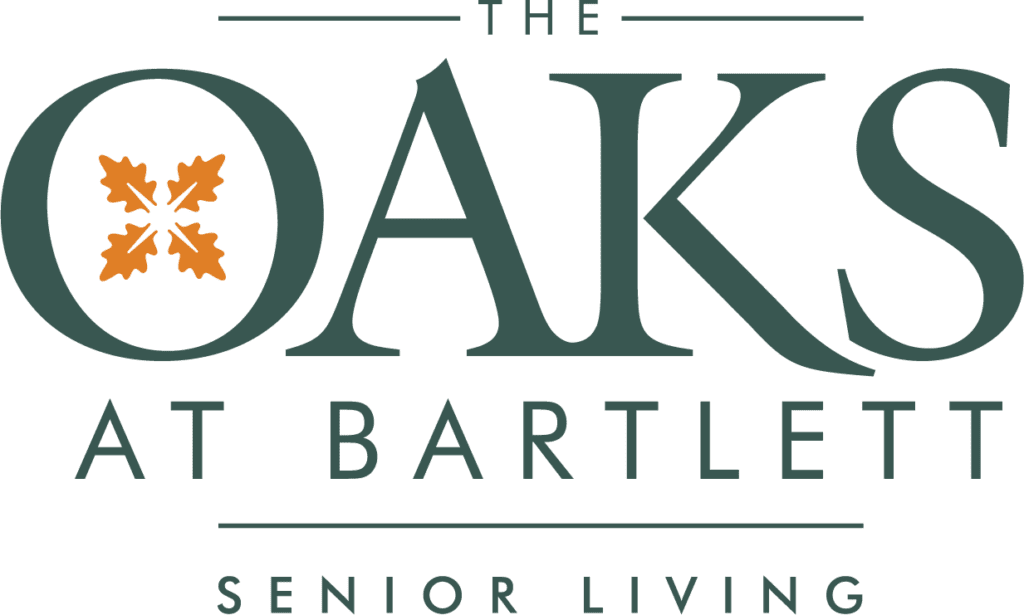Maintaining a healthy diet is one of the most important ways to support healthy aging. Proper nutrition enhances physical health, boosts cognitive function, and improves energy levels, allowing older adults to lead vibrant, active lives. Here at The Oaks at Bartlett, we believe that adopting healthy eating habits is key to aging well. Let’s explore some practical tips to nourish your body and mind in your golden years.
1. Focus on Nutrient-Dense Foods
As we age, our bodies require fewer calories but more nutrients to maintain optimal health. To get the most out of every meal, focus on nutrient-dense foods—those high in vitamins, minerals, and other essential nutrients.
Include these foods in your diet:
- Fruits and Vegetables: Aim for a colorful variety to get a range of vitamins and antioxidants.
- Whole Grains: Brown rice, whole wheat bread, and quinoa provide fiber, which is essential for digestive health.
- Lean Proteins: Incorporate lean meats, fish, beans, and legumes to maintain muscle mass and support metabolism.
- Dairy: Low-fat or fat-free options like milk, yogurt, and cheese are good sources of calcium and vitamin D, which are crucial for bone health.
2. Stay Hydrated
Drinking plenty of water is a critical part of a healthy diet, especially for older adults. Dehydration can lead to confusion, urinary tract infections, and other health issues. Seniors should drink water regularly throughout the day, even if they don’t feel thirsty.
Tips for Staying Hydrated:
- Carry a water bottle with you throughout the day.
- Include hydrating foods like cucumbers, soups, and melons in your diet.
- Drink herbal teas or infuse water with fruits for a flavor boost.
3. Monitor Portion Size
As calorie requirements decrease with age, portion sizes may need adjusted. Eating smaller, more frequent meals can help manage energy levels and avoid overeating. This also supports better digestion and helps prevent blood sugar spikes and crashes.
Tips for controlling portions:
- Use smaller plates or bowls to help control how much you are eating.
- Listen to your body for hunger and fullness cues. Eat slowly and mindfully to recognize when you’re satisfied.
- Avoid eating directly from packages. Instead, portion out snacks to avoid overeating.
4. Reduce Sodium and Sugar Intake
High sodium intake can increase the risk of high blood pressure, while excessive sugar consumption can lead to weight gain and increased risk of diabetes. Opting for lower sodium and lower sugar options can help manage these risks.
Simple swaps to reduce sodium and sugar:
- Check food labels for hidden sugars and sodium. Instead choose natural sweeteners like fruit or honey when craving something sweet.
- Use herbs and spices instead of salt to flavor foods.
- Opt for fruits or yogurt instead of sugary desserts.
5. Prioritize Regular Meals and Snacks
Skipping meals can lead to overeating later and cause fluctuations in blood sugar levels. Prioritize meals and healthy snacks to provide sustained energy throughout the day and prevent hunger-induced overeating.
Tips for regular eating:
- Plan balanced meals ahead of time to help ensure that you make healthier food choices, even on busy days.
- Keep nutritious snacks like nuts, fruits, and whole-grain crackers on hand.
- Try to eat at consistent times each day to maintain stable energy levels.
Making good nutrition a priority at The Oaks
Healthy eating habits are essential for maintaining energy, supporting brain health, and enhancing overall quality of life in your senior years. At The Oaks, we’re committed to helping you enjoy a healthier diet with flavorful, well-balanced meals in a warm and inviting atmosphere, making nutritious eating both enjoyable and effortless. Our chefs take pride in creating dishes that are deliciously healthy and honor your special dietary requests.
To learn more about The Oaks at Bartlett, schedule a tour. We invite you to join us for a meal and experience firsthand the vibrant, welcoming lifestyle we offer.

